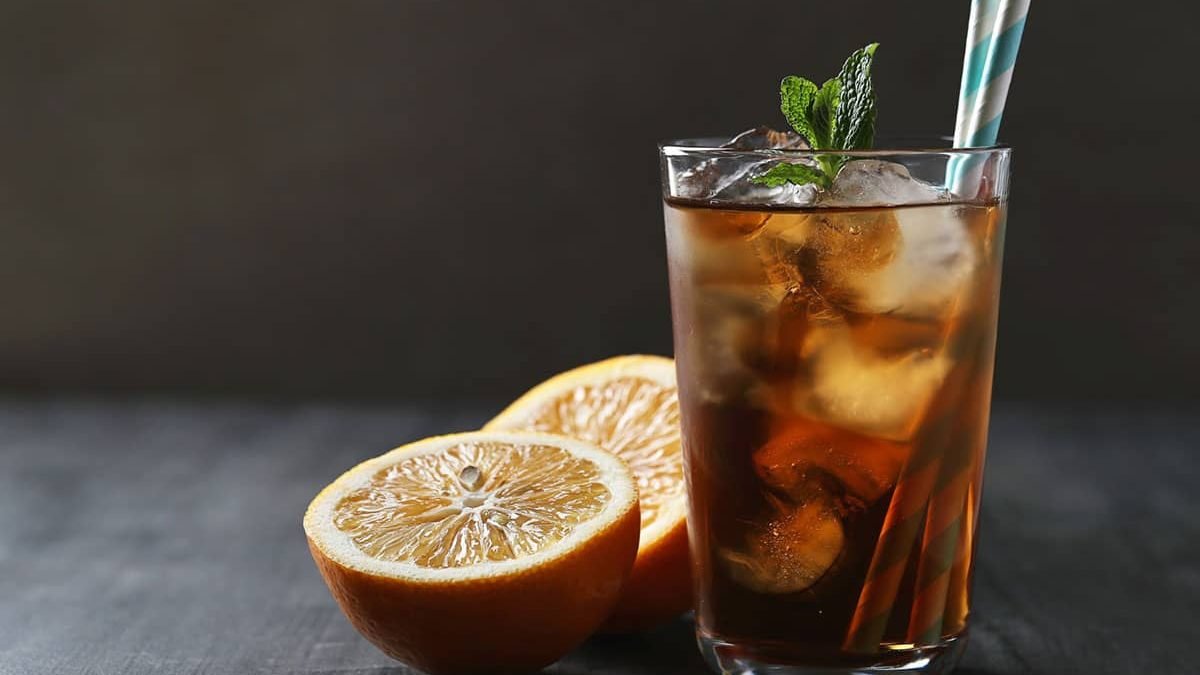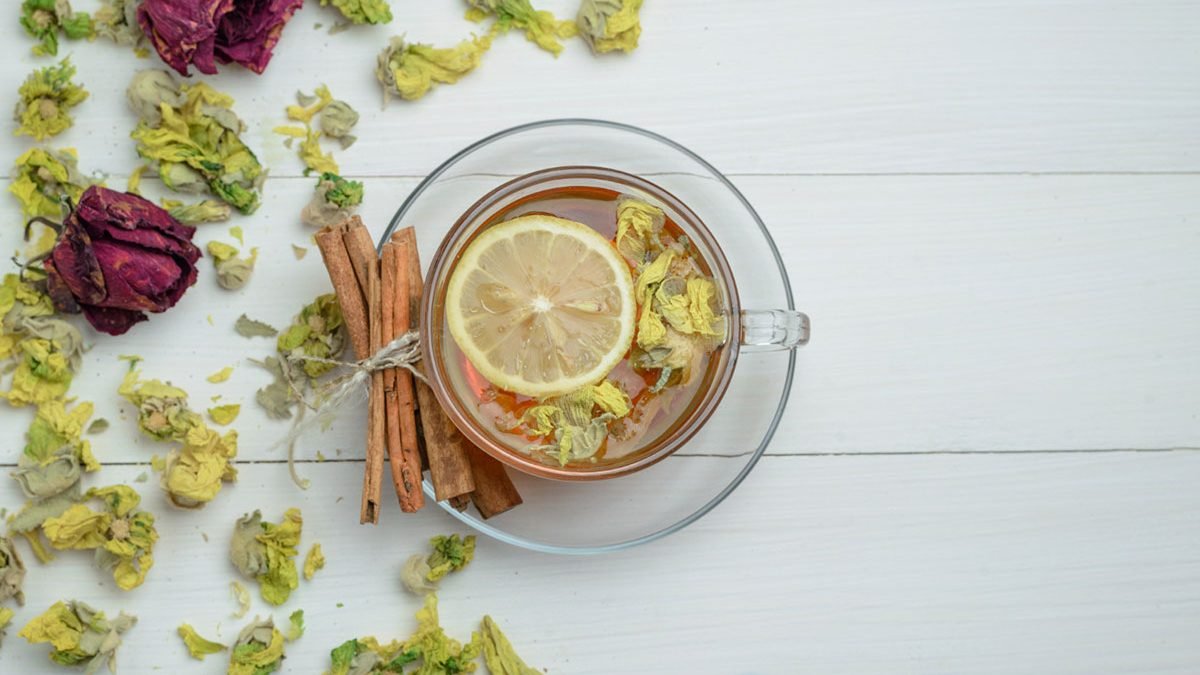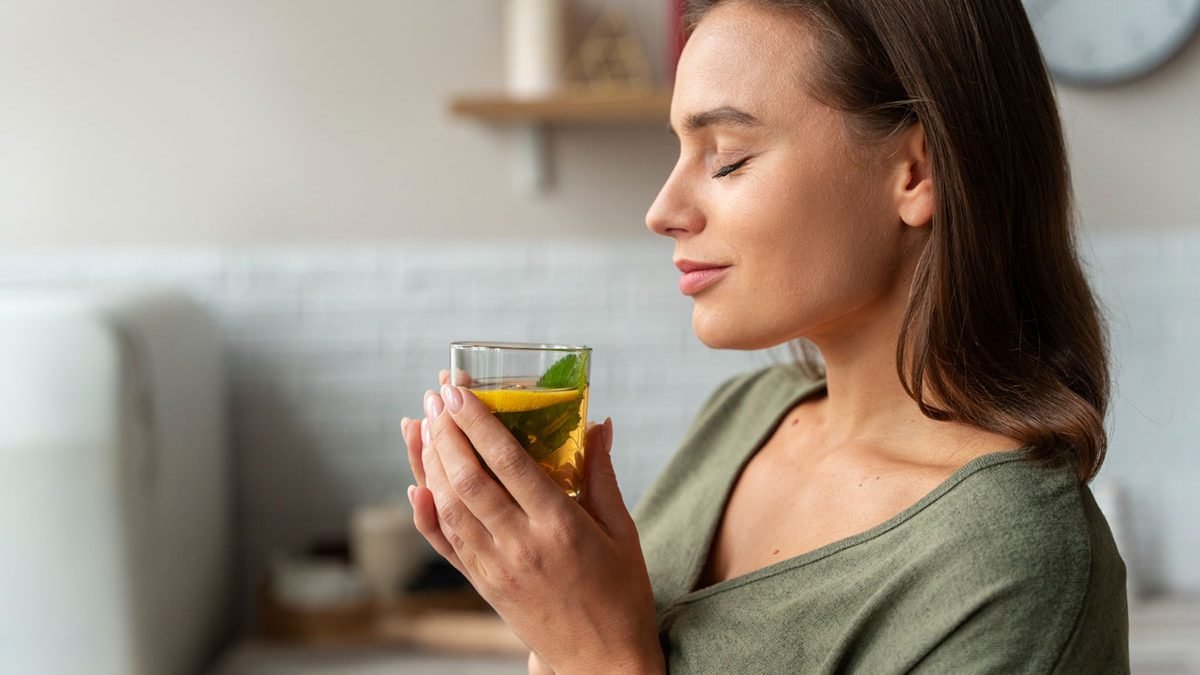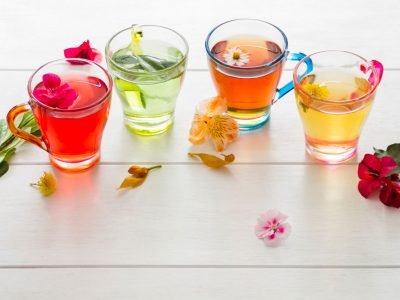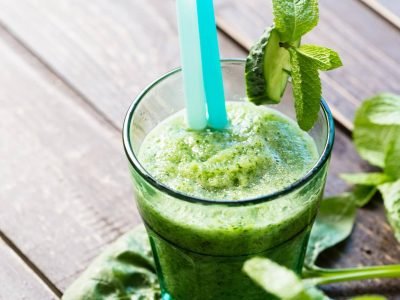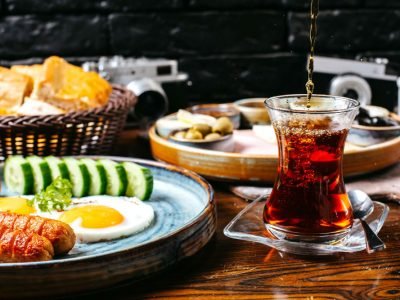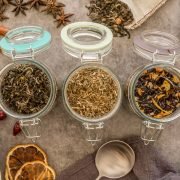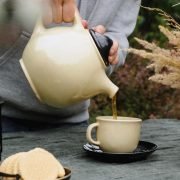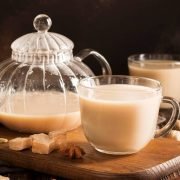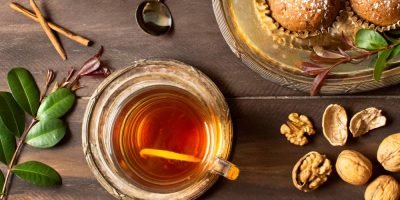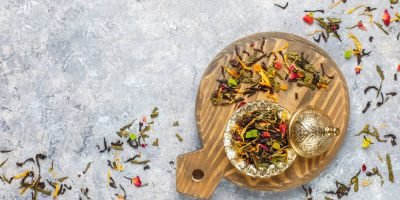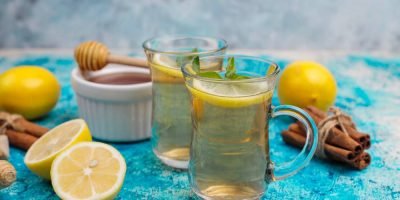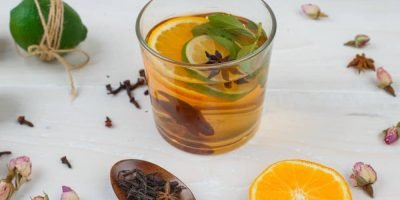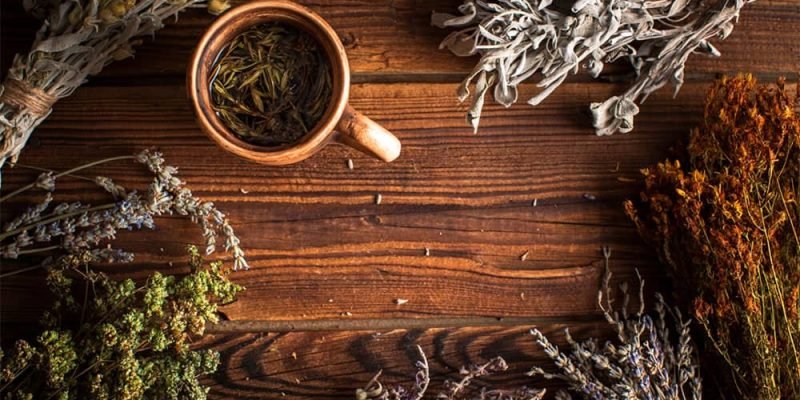
This quick guide to herbal teas will teach you everything you need to know, from making your own herbal tea at home to some of the most popular recipes. Herbal teas offer various health benefits and can be tailored to individual needs.
Herbal teas have been around for centuries, and their popularity is only growing. Herbal teas are becoming increasingly popular as people look for alternatives to coffee and black tea. Herbal teas are made from various plants, including dried herbs, fruits, spices leaves, roots, berries, and flowers, and can be enjoyed hot or cold.
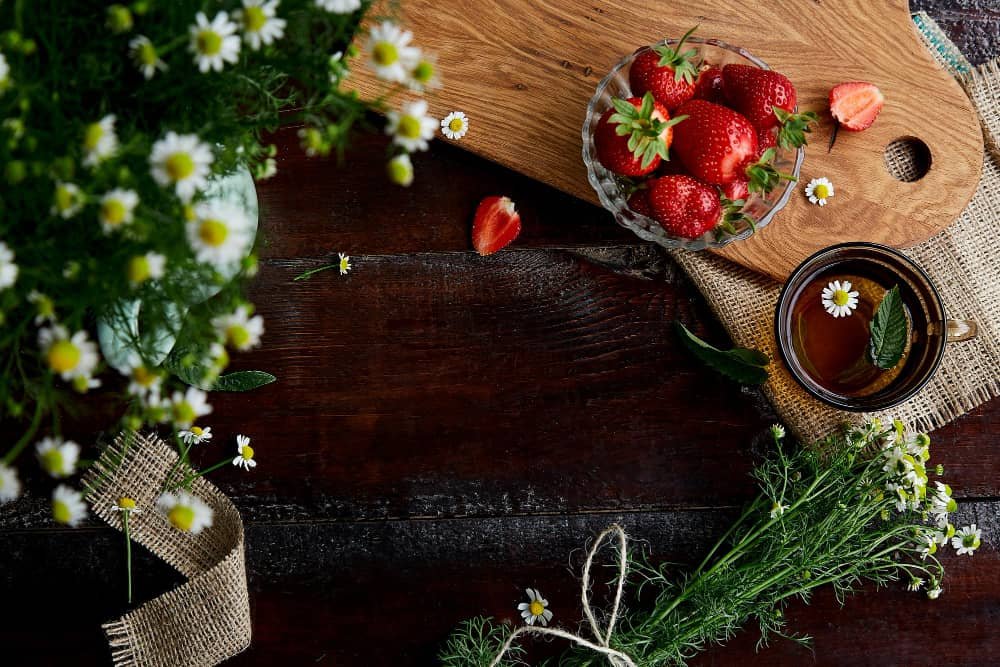
A Quick Guide to Herbal Teas
Tea is one of the most popular beverages in the world, and herbal teas are a subset of tea made using only plants. This means that herbal teas do not contain any caffeine, unlike regular teas.
What are herbal teas?
There are many ways to make herbal tea, but the basic process is to steep dried herbs in hot water. This can be done by simmering the herbs in a pot of water on the stove or by steeping them in a cup of hot water for several minutes.
Many different herbs can be used to make herbal tea, and each one has its unique flavor and benefits. Some of the most popular herbs used in herbal teas include chamomile, lavender, mint, and rosemary.
Herbal teas have many benefits, including helping to relax the body and mind, aiding digestion, and reducing stress levels. Herbal teas can also be helpful in treating cold and flu symptoms.
If you’re looking to try something new, or if you’re looking for an alternative to regular tea, then herbal tea is a great option. With so many different flavors and benefits, there’s sure to be an herbal tea that you will love.
How to make herbal tea
Brewing herbal tea is simple, and there are a few different ways to do it. The most important thing is to use fresh, good-quality herbs. In this quick guide to herbal teas, we’ll share a few tips on how to make herbal tea:
- Pick fresh herbs from your garden or buy them from a reputable source.
- Avoid using dried herbs if possible.
- Wash the herbs gently and remove any dirt or debris.
- Chop the herbs into small pieces if they are large. This will help release the flavor more quickly.
- Place the herbs in a teapot or infuser and add boiling water. Steep for 5-10 minutes, depending on how strong you like your tea.
- Remove the herbs and enjoy your tea!
What are some popular herbal tea recipes?
Chamomile Tea: Chamomile tea is made from the dried flowers of the chamomile plant. It has a sweet, floral flavor and is often used to relax before bed.
Peppermint Tea: Peppermint tea is made from the dried leaves of the peppermint plant. It has a refreshing, minty flavor and can help with digestive issues.
Ginger Tea: Ginger tea is made from the dried root of the ginger plant. It has a spicy, earthy flavor and is often used to help with nausea or stomach pain.
Lavender Tea: Lavender tea is made from the dried flowers of the lavender plant. It has a calming, floral flavor and can help with anxiety or stress.
Herbal tea benefits
Herbal teas are brewed from herbs, spices, and fruits. They offer a vast array of flavors and potential benefits. Herbal teas can help manage stress, promote relaxation, and improve sleep quality.
Chamomile, lemon balm, and passionflower are some of the best herbs for promoting relaxation. Herbal teas can also help boost energy levels and aid digestion. Ginger, cinnamon, cardamom, and licorice are all great herbs for promoting digestion.
If you’re looking for an herbal tea to help improve your overall health, consider one with a blend of different herbs. Some of the best herbs for promoting general health include nettle, lavender, rosemary, and peppermint.
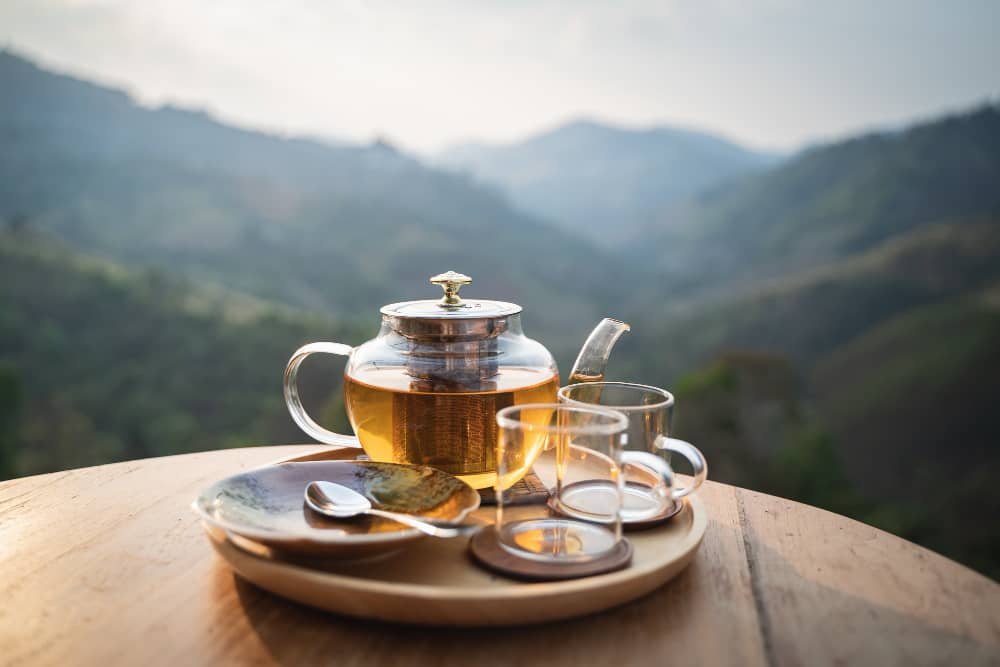
Cautions when drinking herbal tea
In this quick guide to herbal teas, we’ll remember to be cautious when drinking tea. When consuming herbal tea, it is vital to be aware of any possible side effects or interactions. The FDA does not regulate herbal teas, so limited information about their safety is available. Some herbs can cause allergic reactions in susceptible people, so it is always best to do a patch test before using a new herb in tea form.
Certain herbs should also be avoided during pregnancy while breastfeeding or if you have a medical condition. If you take any medications, you must check with your healthcare provider before drinking herbal tea, as some herbs can interact with medications.
Finally, it is essential to know that some herbal teas contain caffeine. If you are sensitive to caffeine or trying to avoid it, check the labels of any herbal teas before consuming them.
Conclusion
Herbal teas are a delicious and healthy way to enjoy the benefits of herbs. As this quick guide to herbal teas showed you, they are easy to make, and many recipes are available to suit your taste. Herbal tea can be enjoyed for its medicinal benefits or delicious flavor. When drinking herbal tea, you must be aware of any possible side effects and consult with your healthcare provider if you have any concerns.
Post Disclaimer
The information contained in this post is for general information purposes only. The information is provided as is and while we endeavour to keep the information up to date and correct, we make no representations or warranties of any kind, express or implied, about the completeness, accuracy, reliability, suitability or availability with respect to the website or the information, products, services, or related graphics contained on the post for any purpose.
These statements have not been evaluated by the FDA and are not intended to diagnose, treat, cure or prevent any disease or health condition. If you have specific healthcare concerns or questions about the products displayed, please contact your licensed healthcare professional for advice or answers.


